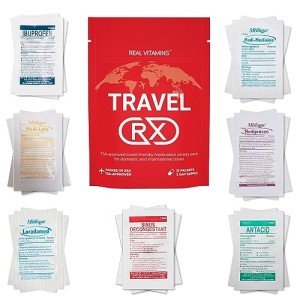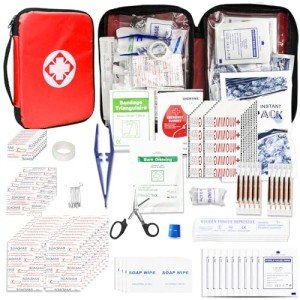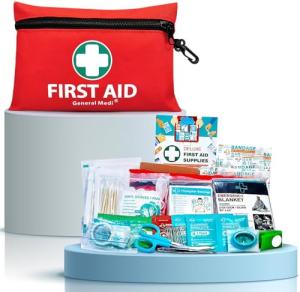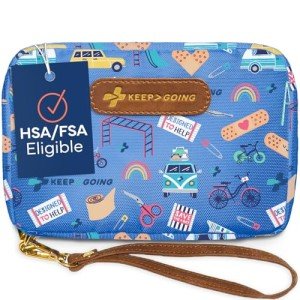Planning a trip? One of the most important steps you can take is to know your vaccine requirements before you go. Different countries have different rules, and being informed can save you a lot of hassle later on. Some places might require certain vaccinations to enter, while others recommend them to keep you safe.
Start by checking the health department website of your destination. They usually have up-to-date information on what vaccines are required or recommended. You'll want to look for things like Yellow Fever, Hepatitis A, or Typhoid, depending on where you're headed. Also, don’t forget to check if your routine vaccines are up to date, such as the Tdap or measles vaccine.
Another good tip is to talk to your doctor or a travel health clinic a few weeks before your trip. They can provide personalized advice based on your health history and specific travel plans. If you need any vaccinations, getting them in advance gives your body time to build immunity.
And remember, keep all your vaccine records handy. Some countries ask to see proof of vaccines when you enter, especially if you come from an area with certain health risks. Having a copy can save you from unnecessary delays or entry issues.
Best Practices for Staying Healthy Away
When you’re traveling, it’s easy to let health take a backseat, but staying healthy away from home doesn’t have to be hard. Here are some best practices to keep you feeling your best on the road or in the air.
Stay Hydrated: Nothing feels worse than dehydration, especially when you're exploring new places. Always carry a water bottle and drink plenty of fluids throughout your travels. You can refill your bottle at water fountains or cafes to save money and stay refreshed.
Pack Smart: Bring along a small first-aid kit with essentials like band-aids, pain relievers, and any personal medications. It’s also wise to include hand sanitizer and wipes. Keeping your hands clean can prevent those pesky germs from ruining your trip.
Maintain Your Routine: Try to stick to your usual meal times and sleep schedule as much as possible. This will help keep your energy levels up and your body in a good rhythm. If you can, find local spots that offer healthy food options, and don't skip those veggies!
Stay Active: Whether it’s a morning walk or a quick hotel workout, staying active helps your body feel good and fight off fatigue. Plus, exploring a new city on foot can be a fun way to discover hidden gems!
Timing Your Shots for Maximum Protection
When it comes to getting vaccinated before your travels, timing is everything. You want to make sure that your body has enough time to build up immunity before you head off on your adventure. Each vaccine works a bit differently, so it's essential to plan ahead.
For most vaccines, it's best to get vaccinated at least 2-4 weeks before your trip. This gives your body the chance to respond to the vaccine and produce the necessary antibodies. Some vaccines, like the flu shot or the hepatitis A vaccine, can start to protect you fairly quickly, but it's still good to give yourself that buffer time.
But don’t forget about the travel timeline. If you're heading to multiple destinations, check if any require additional vaccines well in advance. Some vaccines might also have combinations that need to be spaced out, like the MMR (measles, mumps, rubella) vaccine, which is especially important if you’re visiting areas where these diseases are common.
And don’t skip out on boosters! If you’re overdue for a booster shot for a vaccine you’ve had in the past, make sure to get it before you go. Keeping those immunities up-to-date can keep you better protected during your travels.
Finally, keep in mind that some vaccines may have specific time frames required after receiving them before traveling. For example, for vaccines like yellow fever, there's a window of time you need to be aware of. Always check the recommended guidelines and stay informed through health resources to make sure you're fully protected.
What to Do If You Get Sick
Getting sick while traveling can be a real downer, but knowing what to do can ease your worries. First things first, make sure you have a travel insurance plan that covers medical emergencies. It’s better to have it and not need it than to need it and not have it!
If you start to feel unwell, pay attention to your symptoms. Common travel-related illnesses may include headaches, stomach issues, or even flu-like symptoms. Keep some basic medications in your bag, like pain relievers or antacids, just in case. A little preparedness can go a long way!
Don’t hesitate to seek help if your symptoms get worse. Locate the nearest hospital or clinic as a precaution. Many places have urgent care facilities that can handle common health problems. If you’re unsure where to go, ask hotel staff or locals—they often know the best spots.
Staying hydrated is super important when you're not feeling your best. Drink plenty of water, and if you have a sensitive stomach, stick to bottled water. Rest as much as you can; keeping your energy up helps your body fight off whatever you’re facing. Your trip doesn’t have to come to a halt just because you’re under the weather!







